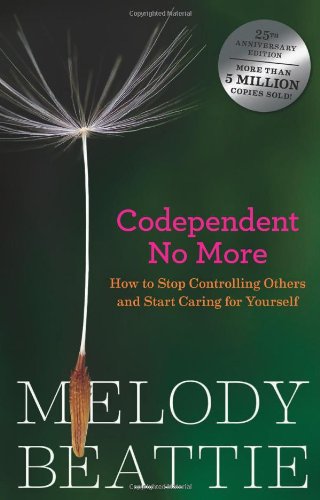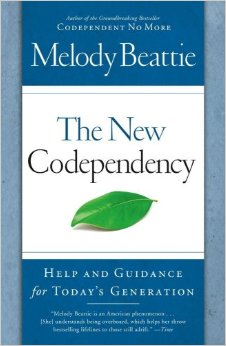For Families
The biggest advance in addiction treatment is the smallest treatment center.
Adaptive Center is a 21st-century center founded on the values of mindfulness and simplicity. Your loved one will receive an intimate treatment experience. We will create individualized treatment plans to overcome the obstacles that prevent them from reaching their fullest potential. You and your loved ones will receive a client-centered experience and an exceptional level of care, available to only 12 clients at a time.
The “adaptive” in our name is literal. We are constantly unfolding, evolving, and always changing to reflect the newest scientific research and findings to offer you and your loved one treatment that is scientifically validated.
Download a printable copy of the Family Package.
What to expect.
You and your loved one have begun the process of healing.
Intimate Attention
The entire treatment center was designed to provide you and your loved one with specialized treatment offered to a very small population: 12 people at a time. That will make a huge difference for you. Many of our clients have been to multiple treatment centers, and report that they benefit more from the small size of the group. The intimacy makes them comfortable, and better able to communicate.
Realistic Treatment
Your loved one will benefit from living soberly in a realistic environment. They will participate in treatment in an environment, in the middle of a city, not on a campus, an isolated institution, nor in a big facility. From day one, they will learn the relevant skills for living soberly and to their fullest potential in the middle of an actual real-life setting.
A Dedicated Team
Your loved one will receive specialized attention from a comprehensive treatment team that will consist of a psychiatrist, individual therapist, group therapists and facilitators, and a case manager. The entire clinical team works to ensure that your loved one is receiving the best possible care. The team collaborates to assist him/her in their process of achieving treatment plan goals and in building their plan for sustained sobriety.
Intake
From the first day your loved one arrives at Adaptive Center, he/she will get oriented so they can clearly understand their treatment objectives. He/she will be assisted in completing initial paperwork, learning the treatment schedule, and transitioning into the treatment environment.
Urinalysis
Your loved one will be required to submit to random urinalysis screenings several times throughout the week. We perform these routine screenings onsite and then send the specimens to a lab for processing. We conduct these screenings as a way to keep clients accountable and deter them from using substances while in treatment.
Psychiatry and Medication Management
Your loved one will meet with our medical director, Dr. Adalgisa De Los Angeles. During the initial meeting, Dr. De Los Angeles will provide a psychiatric evaluation, monitor existing medications, and/or prescribe new medications according to your loved one’s needs. At each subsequent meeting, she will follow up with your loved one to check his/her medication compliance and make adjustments as needed.
Individual Therapy
Upon arriving at Adaptive Center, your loved one is assigned a primary therapist. This therapist collaborates with them to design a Treatment Plan and will meet with the client at a frequency determined by their needs, usually once a week during the first 30 days. The therapist will maintain an ongoing supportive relationship aimed at helping them achieve their treatment goals.
The therapist will be available for contact throughout your loved one’s time at Adaptive Center to answer your questions, request your insights, and update you on your loved one’s progress. Please note that this contact will be contingent upon your loved one’s completion of a Release of Information form. Clients over the age of 18 have the right to authorize or deny the release of confidential information pertaining to their treatment to designated individuals of their choosing.
Group Therapy
At Adaptive Center, group therapy is one of the cornerstones of our treatment program. In every group, our clinical team engages the clients in discussions centered on various topics related to their recovery, the unconscious blocks that have kept them from reaching their potential, and the way forward to success in their lives. Through the group process, clients are encouraged to express themselves and learn from one another’s experiences.
Family Therapy
Research shows that addressing addiction within the context of the family leads to higher rates of successful recovery. If you and your loved one express interest, you may be incorporated into our treatment process by our family therapist in a variety of ways.
Case Management
Your loved one will work directly with our Case Manager, to plan for what will take place following his/her discharge from Adaptive Center. Within the first week of treatment, your loved one will collaborate with our case manager to develop a Discharge Plan, which will include a list of specific, concrete objectives that your loved one will begin working on during treatment to prepare for discharge (e.g., re-enroll in school, obtain employment, secure new housing).
During the course of treatment, your loved one will receive the necessary attention and guidance to work toward the objectives identified in his/her Discharge Plan (e.g., complete an enrollment application, create a resume, conduct an apartment search).
As your loved one’s discharge date approaches, our Case Manager will assist in scheduling appointments for aftercare services, which may include individual therapy, continued medication management, or support group meetings. With continued support, your loved one will create a formal Aftercare Plan that will serve as a guide for your loved one and their support network as they continue on the path to living soberly.
In addition to the ensuring each client is prepared for their journey post-treatment, our case manager will also assist your loved one in completing Leave of Absence paperwork for their employer, communicating with lawyers and/or probation officers, and connecting them with local resources.
Directed Journaling
Expressing oneself through writing can be a powerful therapeutic experience. For this reason, we engage your loved one in the practice of keeping a journal and dedicating time each day to write about specific topics that deal with their personal challenges.
Life Skills Education
Emerging from active addiction your loved ones need assistance with acquiring, or recuperating life skills such as time management, budgeting, nutrition, and social skills. Our clinical team will work with them to address their unique needs and assist them in developing essential life skills.
Success in Treatment
Treatment works best when the person receiving it:
- comes to understand themselves
- sees the errors in their thinking and behaviors
- takes responsibility for their actions
- engages in a process of change
In our vast experience—when these goals become aligned with the goals of the person’s loved ones—treatment becomes successful for both the person treated and for all the people in their life.
Suggested Reading.

Codependent No More
How to Stop Controlling Others and Start Caring for Yourself
by: Melody Beattie

Family Support Resources
If your loved one refuses to accept treatment for a drug or alcohol addiction, you as a family member have a more difficult job ahead of you. On the one hand, you want to be firm with the addict and stop enabling them, but you also need to know how far to push the person before they shut down in denial.
Many families find that hosting an intervention can help get their loved one to accept treatment, but there are dangers with taking this step too far. In most cases, a professional who understands the risks involved can guide loved ones as they plan an intervention. Visit the following pages for more information about hosting a productive intervention, and the dangers to watch out for when considering an intervention.
Alanon/Alateen
www.al-anon.org
800.344.2666
Naranon
Family Anonymous
www.familiesanonymous.org
800-736-9805
Families Anonymous Concerned Teens (ages 14-19)
800-736-9805
Co-Anon Family Groups
www.co-anon.org
520-513-5028
Gamblers Anonymous (GamAnon)
www.gamblersanonymous.org/
718-352-1671
Codependents Anonymous (CoDA)
www.coda.org
602-277-7991
Adult Children of Alcoholics (AcoA)
www.AdultChildren.org
310-534-1815